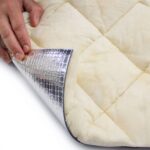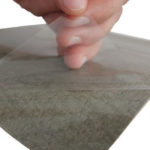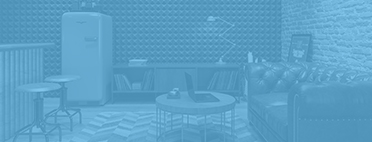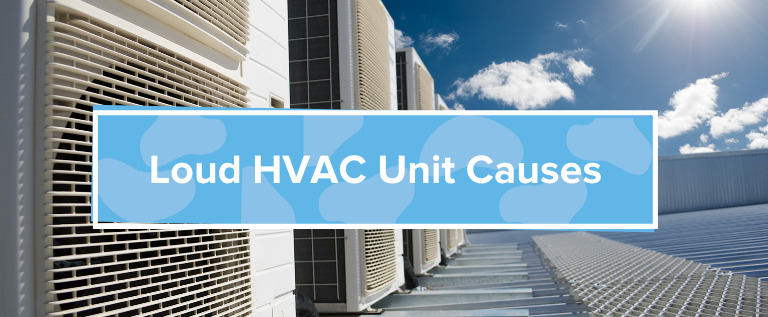
Relaxing with the family, watching a movie or finishing a home recording can be tricky when appliances like your HVAC system won’t pipe down. Fortunately, many sources of HVAC noise are within your control. Let’s take a look at some of the most common sources of HVAC noise and discuss ways to minimize their effects.
Why Is My HVAC Unit So Loud?
If you’re tired of interruptions during your quiet time, understanding the causes of a sound HVAC system can help you remedy the situation. HVAC noise happens as a result of some of the following issues.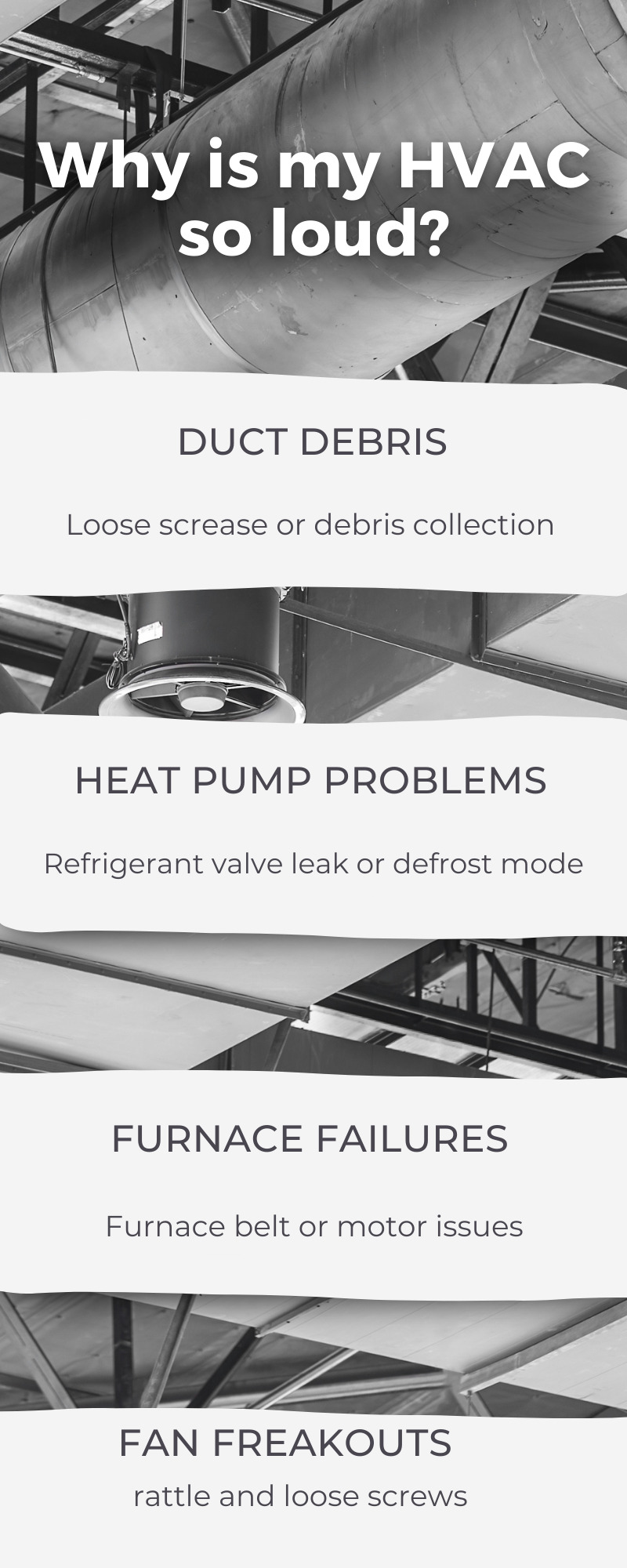
- Duct debris: Your home’s HVAC ducts are responsible for transferring warm or cool air throughout your house, but they can transmit noise just as well. If your ducts have loose screws or begin to collect debris, they’ll produce rattling sounds you can hear around the house. In other instances, hissing indicates leaking coolant.
- Heat pump problems: Heat pumps contain features that regular internal airflow, namely the refrigerant valve on the compressor motor. If the refrigerant valve springs a leak, your heat pump will emit strange hissing or squeaking noises. Your heat pump might also hum when it enters defrost mode. Heat pump air compressors can be noisy even without an underlying problem, so yours may produce noise any time it’s on.
- Furnace failures: Furnaces can also be noisy whether there’s an issue or not. Under normal conditions, your furnace will click as it ignites and hum during operation. Listen for sounds like squealing or screeching that indicate problems with the furnace’s belt or motor. A furnace may also wobble or vibrate if it goes out of balance.
- Fan freakouts: One of the most common sources of HVAC noise, fans will start to rattle when screws come loose. In other instances, debris may be disrupting the fan’s cycle, causing banging or clanking sounds.
What to Do If Your HVAC System Is Too Loud
HVAC noise can seem overwhelming, but there are a few ways you can reclaim control and reduce the effects of HVAC noise in your home:
- Find the cause: If you notice odd sounds, listen closely to find the source and refer to the list of causes above to determine the best solution.
- Get the materials to reduce the noise: In some cases, the problem may be more expensive to repair than what it’s worth. If the best solution is to minimize the noise, try using soundproofing products like foam or fiberglass composites to insulate ductwork for sound absorption.
- Fix the noise problem: Soundproofing materials can reduce a lot of the noise coming from your HVAC system, but keep in mind that some problems require professional assistance. Consult with your preferred technician to fix any pressing concerns.
HVAC Noise Solutions From Soundproof Cow
HVAC systems are full of intricate components that can make all sorts of disruptive sounds. While some noises warrant a call to your HVAC technician, soundproofing materials can successfully reduce the amount of HVAC noise you hear. If you’re ready to address those unsettling sounds once and for all, browse our soundproofing barriers or get in touch for a free in-home acoustic analysis.




